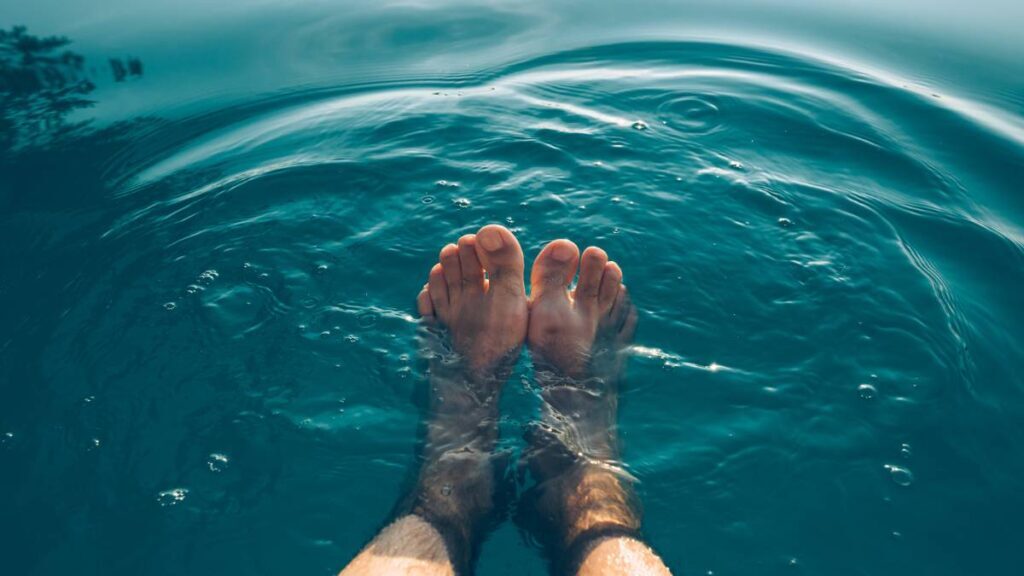Making Waves of Wellness: Exploring the Benefits of Aquatic Physiotherapy

Recognizing The Signs of Stroke
27 October 2023
The Importance of Stretching
21 March 2024
AQUATIC THERAPY:
Aquatic therapy is a method used to alleviate a variety of symptoms your body may be experiencing. You have probably benefited from hydrotherapy at some point in your life; soaking in a hot tub, a bath in Epsom salts, a warm shower after working out are all considered to be examples of hydrotherapy . In the past two decades, researchers have started to study water therapy as evidence-based treatment for a variety of conditions. Many hospitals and physiotherapy clinics incorporate aquatic physiotherapy to complement their rehabilitation programmes.
WHY AQUATIC PHYSIOTHERAPY:
While it is primarily used to relieve symptoms such as pain and stiffness, aquatic physiotherapy can also help to increase range of motion, strengthen muscles and assist people to more confidently return to exercise after an illness or injury. When conducted in a warm pool, muscles relax and muscle spasms can decrease allowing for better movement. The resistance of the water can also improve muscle strength and endurance.
Aquatic physiotherapy can be beneficial for both musculoskeletal/orthopaedic conditions as well as for neurological injuries or conditions.
For orthopaedic conditions/surgery, clients with mobility issues i.e. recovering from hip/knee surgery or back surgery can enjoy the buoyancy and stability provided by the water, which can increase their confidence as they regain their mobility. The low impact of the water means that joints are protected during exercise. Warm water can also reduce pain, allowing for a greater ability to exercise in the water before other exercises can be achieved on land. How far the water level reaches on the person’s body will determine how much of their body weight they are managing while they exercise. The warm water can also increase the blood flow to the muscles. By using the property of viscosity of water, a person can determine how much resistance they add to their exercises, by changing the speed of movement through the water. No external weights are necessary to make an exercise more challenging. Simple things like flutter boards, closed hands or even towels in the water can increase the resistance for strength training and balance work.
For neurological injuries/conditions– water will allow for ease of movement since the body is supported by the buoyancy of the water. There is less fear of falling and a greater range of movements and postures can be achieved in the water, even before these movements can be realized on land. Warm water can relax spastic/tight muscles and establishes an environment of relaxation and peacefulness. Client’s can work on movements of the arms and legs in a lying position (with a swim collar and floats) or work on standing in the upright position. Since weight bearing is greatly reduced, it is easier to manage body weight for various exercises. Things that may be unsafe to try on land are now more easily achieved in the water. There can be less pain felt when exercising in the water because of the support to the joints and the warmth of the water. The water acts like an invisible treatment table, allowing for easier access to work on stretching and joint mobilization. Immersion in the water provides a resistive medium that can be manipulated to work with or against the movement of the exercise, thus helping to move through the water or resisting movements. Water allows for active assisted movements and strengthening . It provides a safe environment to challenge and improve balance. Still water vs lIght ripples vs turbulent waves will demand different responses to maintain one’s balance. In this way, balance exercises can be geared towards each individual and are easily progressed and modified.
Various techniques can be implemented in the water, including: Ai Chi, Bad Ragaz, Pilates and Yoga, Plyometrics and Watsu, and many more. Aquatic physiotherapy is fun, energizing and provides people with the freedom they may not be able to appreciate on land.
Aquatic physiotherapy can be conducted in your home pool or in a community pool. While our clinic does not have a pool on site, Valley Park Pool is just a short distance from us in an accessible facility. It is also equipped with a warm pool. To find out if aquatic physiotherapy is right for you- contact HNHB Spine and Neuro Rehab to learn more.
NB (As with any programme, aquatic physiotherapy should only be done after speaking with your healthcare provider to make sure it is a safe option in case of any pre-existing health conditions that may need to be monitored).



